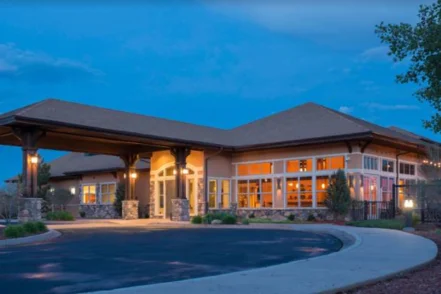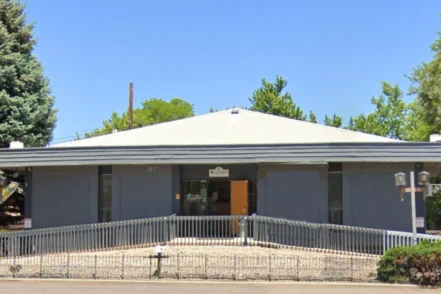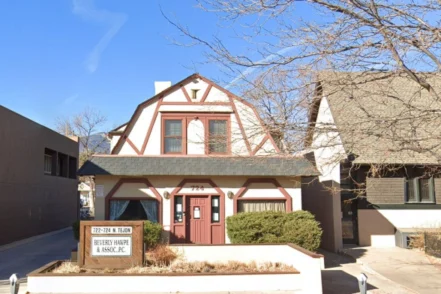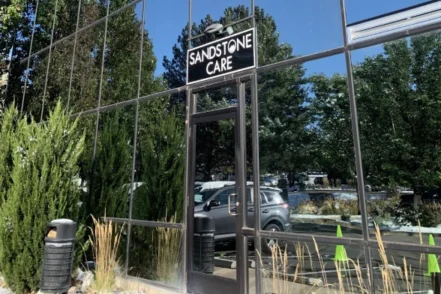About Third Way Center East Lowry Boulevard
Third Way Center is a nonprofit organization that has been providing rehabilitation services to the Denver community for over 50 years. We offer a wide range of services for men, women, and young adults struggling with addiction and mental health issues. Our programs are designed to meet the unique needs of each individual, and we offer both inpatient and outpatient options. We use a variety of evidence-based therapies, including cognitive behavioral therapy, dialectical behavior therapy, experiential therapy, and trauma-informed therapy. We also offer family therapy and group therapy to help our clients heal from the inside out.
Addiction Treatment Programs
Dual Diagnosis
Dual diagnosis treatment in Colorado addresses both your mental health and your recovery needs. Along with traditional evidence-based substance use treatment, clients may receive mental health counseling, medication, peer support, and other tools to help them manage their mental health.
Men's Rehab
A men’s rehab in Colorado helps clients build same-gender friendships, overcome substance use, and learn new life skills. Along with traditional evidence-based treatment, clients may receive education on topics relevant to men, such as fatherhood, healthy relationships, emotional vulnerability, and more.
Women's Rehab
Choosing a women’s rehab in Colorado helps give the support you need in overcoming addiction and learning to handle gender-specific challenges. Along with traditional evidence-based treatment, clients may receive help with childcare, classes in parenting, and advice about being a working mother and building healthy relationships.
Young Adult Rehab
Young adult rehab programs in Colorado address the unique needs of this stage of life. Along with traditional evidence-based treatment, clients may receive educational support, employment training, and help securing housing.
Insurance Coverage
Medicaid
If you qualify in Colorado, Medicaid is one of your options when it comes to paying for rehab. This can be helpful for those struggling to pay for treatment. Look for centers that accept Medicaid and offer the levels of care you need, such as detox, inpatient, and outpatient treatment.
Private insurance
If you have private insurance, the plan can cover some or all of the costs of rehab in Colorado. The specific amounts will vary depending on plan details, and you’ll want to ensure you understand the copays and deductibles you may be responsible for. Keep in mind that in-network centers will have lower costs for you.
Self-pay options
Self-pay allows you to pay the full cost of addiction treatment in Colorado by check, sending electronic payment to the center, or getting a medical loan. Keep in mind that fee structures may vary depending on the level of care.
Levels of Care
- 1
Inpatient Rehab
Attending inpatient treatment in Colorado allows you to get evidence-based care while living in the facility, helping you establish long-term recovery. Residential treatment allows you to build new relationships and begin to learn how to enjoy life without substance use.
- 2
Outpatient Rehab
Outpatient treatment in Colorado is led by professionals who provide several hours of treatment per week. Outpatient treatment includes multiple approaches, including cognitive behavioral therapy (CBT), motivational interviewing (MI), and holistic therapy options.
Therapies
Cognitive Behavior Therapy
If you’re struggling with substance use in Colorado, you may not realize how connected your thoughts and actions are. Cognitive behavioral therapy (CBT) can help increase your awareness. CBT is a common part of evidence-based treatment programs and may be a part of inpatient treatment, outpatient care, or both. CBT can be empowering as you learn to manage your thoughts and emotions rather than being overwhelmed by them.
Dialectical Behavior Therapy
If you’re struggling with substance use in Colorado, you may not realize that you have the power to improve your circumstances. Dialectical behavioral therapy (DBT) can help you learn how to make positive changes. DBT is a common part of evidence-based treatment programs and may be a part of inpatient treatment, outpatient care, or both.
Experiential Therapy
Experiential therapy in Colorado allows you to participate in hands-on activities that can help you work through challenges. Experiential therapy is commonly part of inpatient or intensive outpatient treatment and may be used to help with skill-building, addressing trauma, and managing substance use triggers.
Family Therapy
Family therapy in Colorado is generally led by a professional who facilitates family members sharing their experiences and emotions. Family members learn how to play a positive role in supporting your recovery. Some of the topics covered in family therapy include improving communication, developing healthy coping skills, avoiding codependency and enablement, and learning to support each other in healthy ways that foster recovery from addiction.
Group Therapy
Group therapy in Colorado is generally led by a professional who facilitates client’s sharing of their experiences and emotions. Group therapy is a normal part of evidence-based treatment programs, and may be a part of inpatient treatment, outpatient care, or both. Topics include addiction education, sharing of experiences, and learning new skills.
Individual Therapy
Overcoming substance use is easier if you’re not alone. During individual therapy in Colorado, you’ll have a professional ally who will help you see things in a new way. Individual therapy is a common part of both inpatient and outpatient substance use treatment and may be used to help with skill-building, overcoming trauma, and creating a substance-free lifestyle.
Trauma Therapy
In Colorado, trauma-informed therapy allows you to be honest about what has happened to you in the past and understand how substance use may be a response to that. From there, you can create better coping strategies. Trauma-informed therapy sessions generally last 60 to 90 minutes and may include discussing a specific event, talking about emotional triggers, and learning emotional regulation and cognitive restructuring skills.
Location
Contact Third Way Center East Lowry Boulevard
Top Drug Rehab Centers in Colorado
-
 Colorado
ColoradoAll Points North Lodge
2205 Cordillera Way Edwards, Colorado 81632
-
 Colorado
ColoradoThe Recovery Village at Palmer Lake
443 S. CO-105 Palmer Lake, Colorado 80133
-
 Colorado
ColoradoA New Perspective Counseling Centers Loveland
2017 West Eisenhower Boulevard Loveland, Colorado 80537
-
 Colorado
ColoradoDenver Womens Recovery
3801 East Florida Avenue, Suite 650 Denver, Colorado 80210
-
 Colorado
ColoradoMountain Springs Recovery
1865 Woodmor Monument, Colorado 80132
-
 Colorado
ColoradoBeverly Hawpe and Associates
724 North Tejon Street Colorado Springs, Colorado 80903
-
 Colorado
ColoradoThe Rose House Louisville
601 Snowpeak Ln Louisville, Colorado 80027
-
 Colorado
ColoradoSandstone Care Denver Center
7555 East Hampden Avenue, Suite 103 Denver, Colorado 80231
-
 Colorado
ColoradoRed Rock Recovery Center
12567 W Cedar Drive, Suite 100 Lakewood, Colorado 80228
-
 Colorado
ColoradoValley Hope of Parker
22422 E Main Street Parker, Colorado 80138